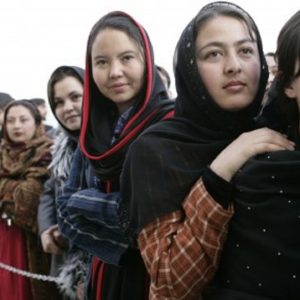The people of Afghanistan need the support of the international community now more than ever. Throughout the decades of failed military interventions, humanitarian organizations have stayed, working with communities that have been ravaged by years of conflict, climatic disasters, poverty, and persecution.
Over half of the country’s population lives below the poverty line. At the start of 2021, 18 million people were dependent on humanitarian assistance, with more than 3 million children at risk of acute malnutrition. The human toll of the conflict, drought, and COVID -19 this year has been immense, particularly for women and children.
While the focus of the world has been on the airlifts and evacuations out of Kabul, the work of NGO staff goes on, albeit under emerging policies and regulations. The need for adaptation is not new. Volatility is inherent to humanitarian work and effective humanitarian action requires adaptation all the time. Concern has been working in Afghanistan for 23 years, supporting the most vulnerable communities, and has to adjust and adapt continuously.
Whether it is in Somalia, South Sudan, Afghanistan, or any other context, to be a humanitarian is to stay and deliver, even when administrations change or conditions become more difficult. Guiding our staff is the international humanitarian principles of humanity, impartiality, neutrality, and independence, principles that are ever more important in times of acute crisis and central to how we navigate and negotiate access.
These are never easy contexts to work in; insecurity and uncertainty have been a daily reality in Afghanistan for Concern staff and the communities we work with. In the aftermath of 9-11, I spent weeks with our teams on the ground at what was a deeply challenging time. What struck me above all was the resilience and humanity of the Afghan people and the commitment of the men and women who work with Concern.
At the height of the most recent conflict, our work across three provinces was suspended and our staff was forced to shelter at home. Today, our provincial offices are open and staff is cautiously back at work under assurances that they and other NGO staff will be safe. However, we know the situation remains volatile, and negotiations continue at local levels to determine what degree of freedom of movement we have, and in particular, to ensure the safety and security of our female staff.
This is a very fast-moving situation but at this time, it is critical to remember that principled, accountable, properly targeted humanitarian assistance can be delivered in Afghanistan and has been for many years. That must be at the forefront of our minds because, while the world waits, observes, and adjusts to the new reality, millions of people are in need of essential services, protection and seeds ahead of the critical winter planting season.
Although we have seen much news coverage of Kabul since the weekend, more than half the entire country is already in need of humanitarian assistance. Over 80 percent of Afghanistan is in a serious drought, leading to a decimation of the critical wheat harvest. At the same time, the disruption of conflict and COVID-19 has resulted in rapid inflation of basic food prices at markets. More than a third of the population is now facing crisis levels of food insecurity.
Faced with a multitude of such severe crises, what the Afghan communities now need most of all is the reassurance that the international community is not withdrawing support and abandoning them.
Humanitarian funding to Afghanistan prior to these latest dramatic events was already seriously inadequate. The United Nations-led annual Humanitarian Response Plan for the country is only 38 percent funded, leaving a shortfall in funding of $793 million. It is impossible for the humanitarian community to provide the most basic level of assistance without adequate funding to meet the increasing needs.
In responding to the new reality in Afghanistan, it is essential that the right of disaster-affected people to access humanitarian assistance is prioritized first and foremost. That is the absolute minimum the people of Afghanistan deserve. Humanitarian response organizations -international, national, and local- have established a long record of accomplishment of meeting the most urgent needs in Afghanistan under the most severely challenging of circumstances. They must be supported to continue to do so.
We will stay in Afghanistan and remain committed to reaching people in need of assistance. We urge the international community to also stand with the people of Afghanistan at this critical moment.

